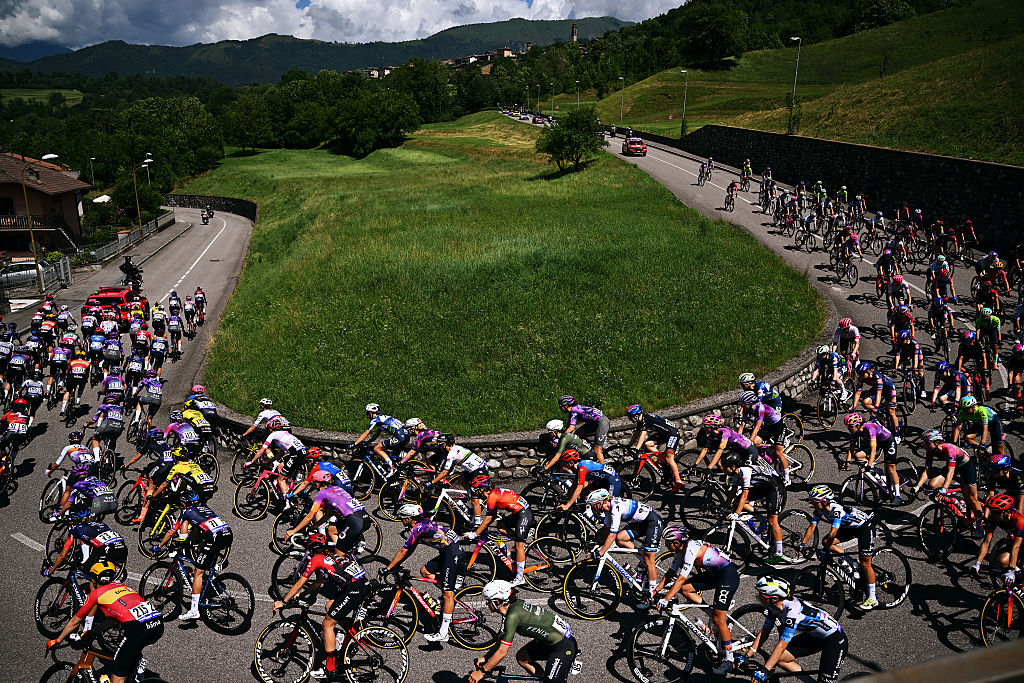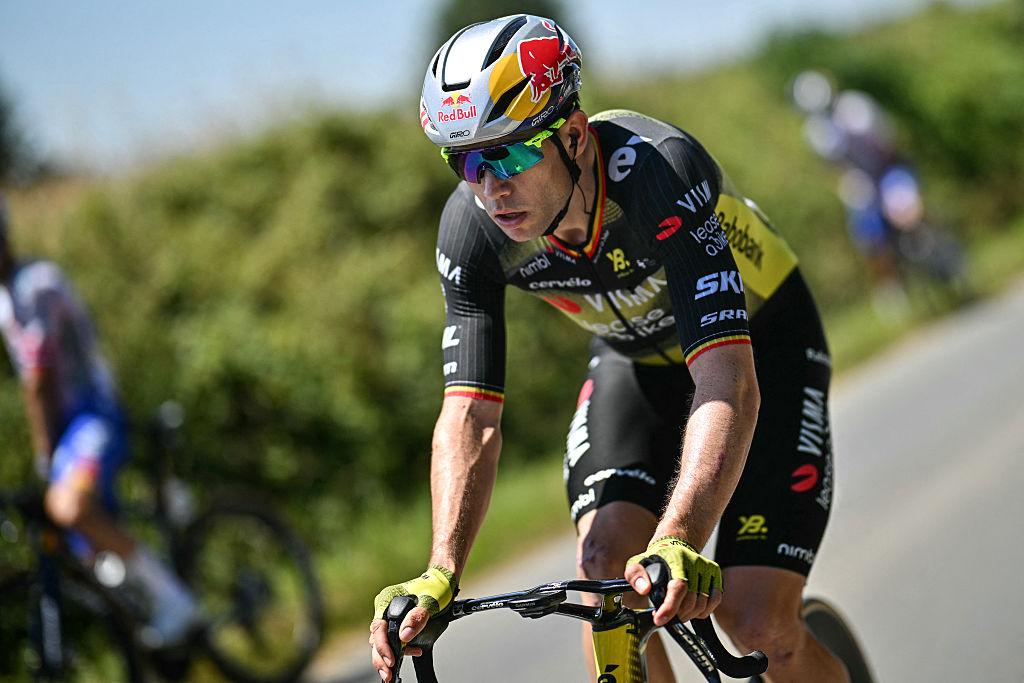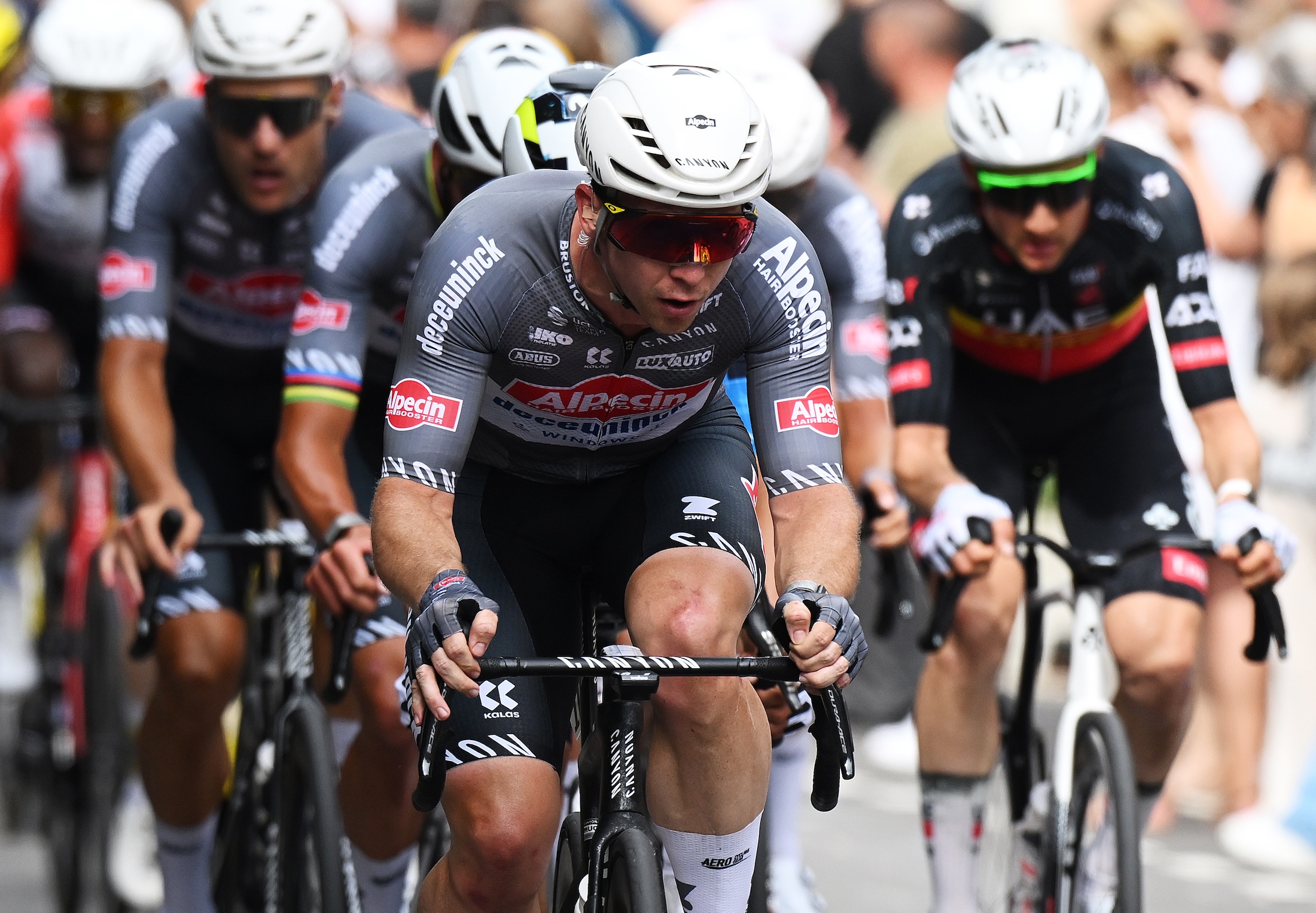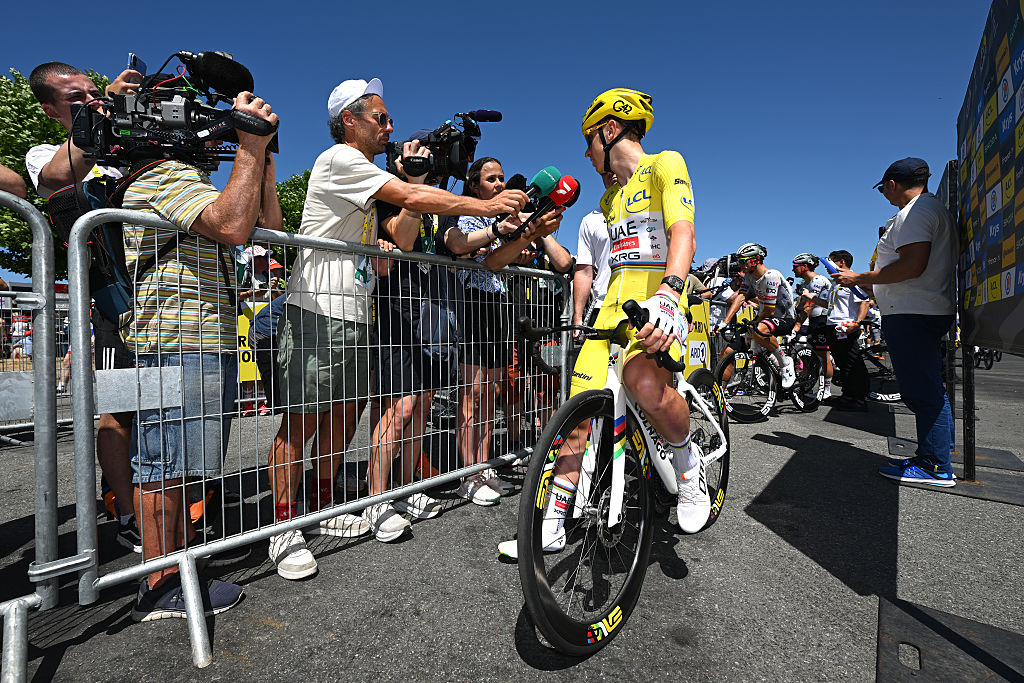Tour of Flanders 2021 – Race preview
Back in spring and plenty at stake to drive aggressive tactics to try beat the trio of favourites at Ronde van Vlaanderen
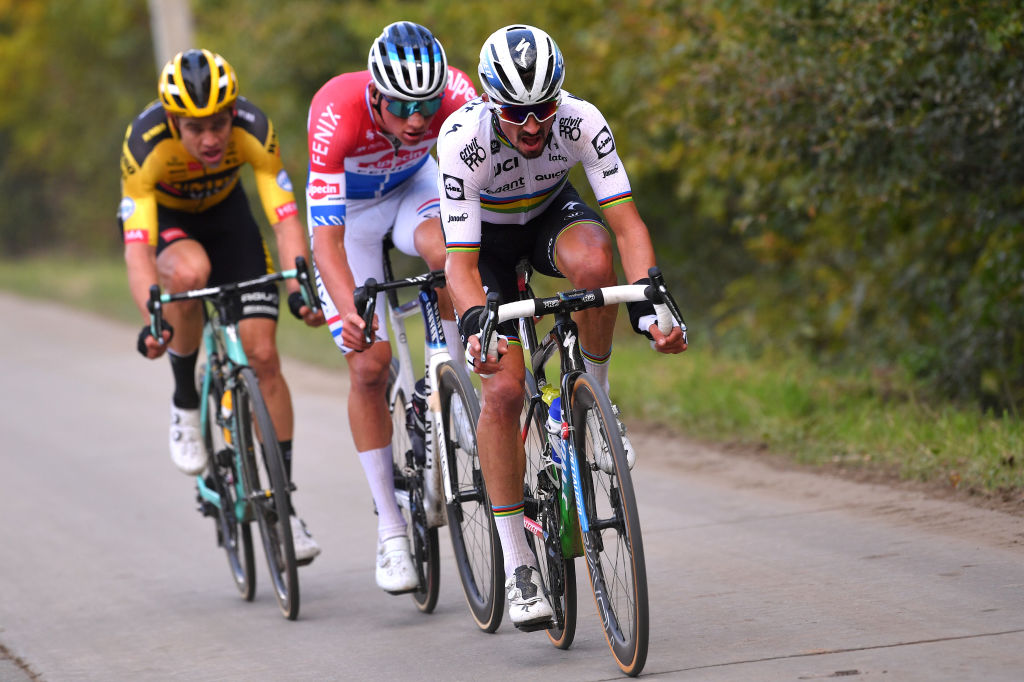
After a pulsating Milan-San Remo and a series of highly entertaining other Classics, the second Monument of the 2021 season comes into view this weekend with the Tour of Flanders expected to once again be one of the most exhilarating races in the men’s WorldTour calendar.
Unlike last year, when the Coronavirus pandemic drastically altered the race calendar and lead to the Classics being shepherded towards the Autumn months, the Tour of Flanders finds itself in its familiar April and Easter slot, and with a round of major Classics contenders vying for victory.
Last fall Mathieu van der Poel (Alpecin-Fenix) claimed a dramatic sprint win over Wout van Aert (Jumbo-Visma) and the pair return once more as firm favourites alongside world champion Julian Alaphilippe (Deceuninck-QuickStep) and a raft of other legitimate contenders.
The road towards this year’s Tour of Flanders is very different from last year, however, but several consistent trends have marked the spring campaign to date and they could be instrumental in this weekend’s race.
Deceuninck-Quickstep have shown flashes of dominance this spring with wins in a string of races this season but their displays in both Milan-San Remo and most recently in Gent-Wevelgem have demonstrated that their numerical advantages in races can be overcome by aggressive tactics. Several other teams have strengthened already highly competitive Classics teams over the winter and are adapting their strategies to take advantage of the Van Aert - van der Poel - Deceuninck-QuickStep rivalry.
Van der Poel’s lukewarm ride in Dwars door Vlaanderen might have taken some of the shine from his star but the defending champion will surely be front and centre when it matters most on Sunday. The recent return of Silvan Dillier provides the Dutch rider with extra support on the bergs and when it comes to a possible weakness in positioning. Van Aert can point to Nathan Van Hooydonck’s performance in Gent-Wevelgem as proof of the depth within his Jumbo-Visma team.
With Paris-Roubaix hanging on a knife-edge, the Tour of Flanders has added importance within a spring campaign that is starting to see clusters of COVID-19 cases impact on rosters. Victory on Sunday could be the most important of the whole spring.
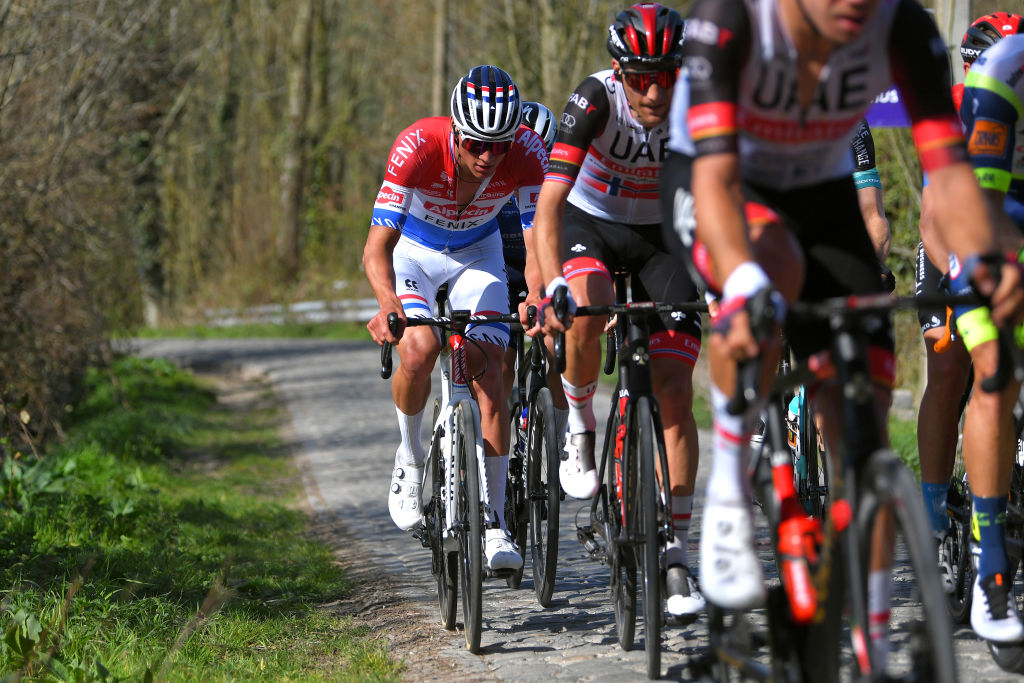
The Route
The 2021 Tour of Flanders starts in Antwerp once again and with few changes to the course from last year. Riders will take on 254.3 kilometres and 19 climbs and 17 cobbled sectors before arriving in Oudenaarde for the finish. While the Muur once again does not feature in the race, the organisers have added more climbing between the first and second ascents of the Kwaremont in a bid to make the race harder to control and less predictable.
The first 100 kilometres are relatively flat but depending on the wind conditions and team tactics a typical break will form in the opening hour of racing before Deceuninck-QuickStep inevitably position Tim Declercq on the front in a bid to limit the leaders’ advantage before eventually grinding them down.
If the Milan-San Remo playbook is anything to go by, the Belgian team might well have limited support from Jumbo-Visma and Alpecin-Fenix, who both contributed a rider to help Declercq. Deceuninck-QuickStep’s rivals might shy away from compliance and cooperation to instead focus on saving as many riders as possible for what lies ahead.
The first major obstacle on the route comes with the Kattenberg, a short but nasty little ascent that will test riders as they switch down from the big ring. That first climb comes after 102 kilometres of racing but it’s merely the appetiser before the first of three climbs of the Oude Kwaremont, the first of which comes about 20 kilometres after the Kattenberg.
The race into the foot of the Kwaremont climb will be just as important as the ascent itself and it should mark the first key selection point in the race.
The Kortekeer (131km), Eikenberg (139km), Wolvernberg (142.5km) Molenberg (152km), Marlboroughstraat (156.4km), Berendries (160km), and Valkenberg (165.8km) all come in quick succession and any form of bad luck or a mistake could be terminal to a rider’s chances of victory. Positioning will be vital during these key climbs and their approaches, and it's possible that even if an early break is still up the road a strong counter-attack could form at this point.
The next two climbs of the Berg Ten Houte and the Kanarieberg have the potential to be important but they are climbs on which riders can lose the race rather than win it.
The second ascent of the Oude Kwaremont and the race into the base of the climb itself marks the next critical point at 199.7 kilometres of racing.
The Paterberg follows almost immediately, before the Koppenberg, Steenbeekdries – where Alaphilippe attacked last year, then the Taainberg and the Kruisberg follow. This second wave of climbs could easily see a winning move go clear, and team numbers will be crucial at this point.
The third and final loop of climbs comes after 237 kilometres of racing, with the Oude Kwaremont and the Paterberg providing the final launch pads before the flat run-in towards the finish.
As ever, this is a Flanders route that favours aggressive racing but as in the past, such as Nick Nuyens win ten years ago, it's sometimes the smartest, rather than the strongest, rider who comes out on top.
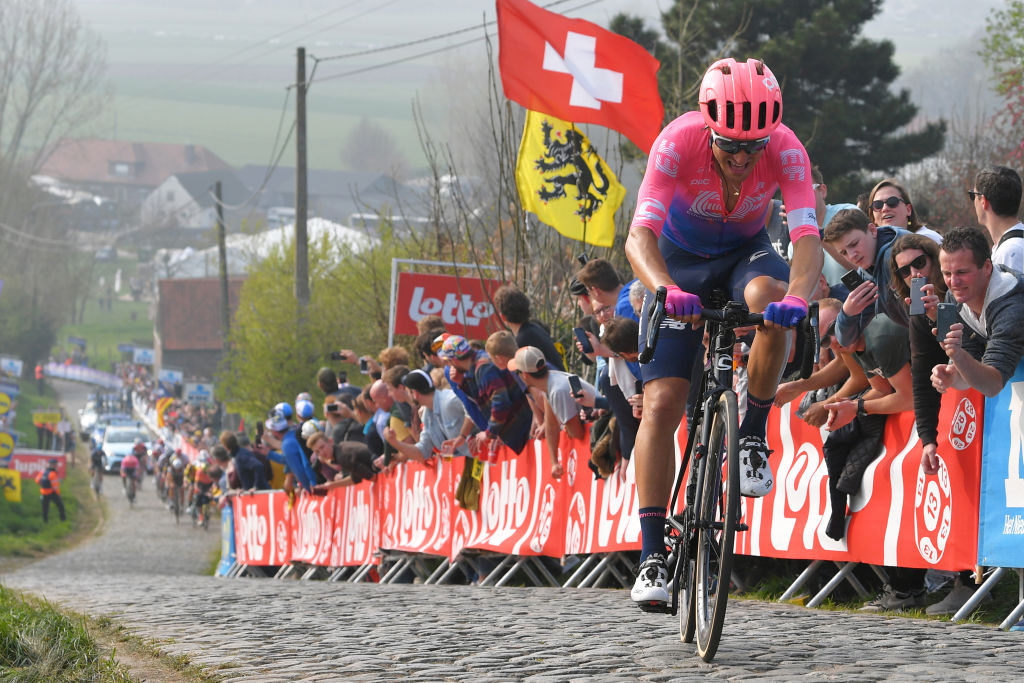
The Contenders
Van der Poel, Van Aert and Alaphilippe are set to clash for the first time since Milan-San Remo, with all three riders holding legitimate claims of being tagged as the pre-race favouirte.
Van der Poel comes into the race as the defending champion, and the winner of a memorable edition of Strade Bianche, while Van Aert arrives with his confidence high after victory in Gent-Wevelgem.
Alaphilippe has been slightly more subdued – a word rarely associated with the Frenchman – when comparing him to his two principle rivals. He still heads to Flanders with a stage victory in Tirreno-Adriatico and second place in Strade Bianche.
Despite a lighter race schedule than Van Aert and Van der Poel, he arguably has the strongest team with several understudies capable of claiming a Flanders title. Given Patrick Lefevere’s history in using his blue chip rider to nullify opposing riders, the likes of Zdenek Stybar, Yves Lampaert, and Kasper Asgreen cannot be ruled out. The Dane, especially, is in blistering form and finished second in the race back in 2019.
Peter Sagan (Bora-Hansgrohe) may not be the headliner from seasons past but the lack of focus on his standing certainly leaves him with less pressure and attention in a race where tactical skirmishes can occur at almost any point. In Nils Politt the former three-time world champion has a foil to work with, while the rest of the Bora-Hansgrohe team are hardened Classics specialists who know how to protect a leader.
Sagan’s fourth place in Milan-San Remo, and his stage win in the Volta a Catalunya are proof of the 31-year-old’s rapidly improving form after recovering from COVID-19 and he cannot be ruled out even though he’s still not at his best.
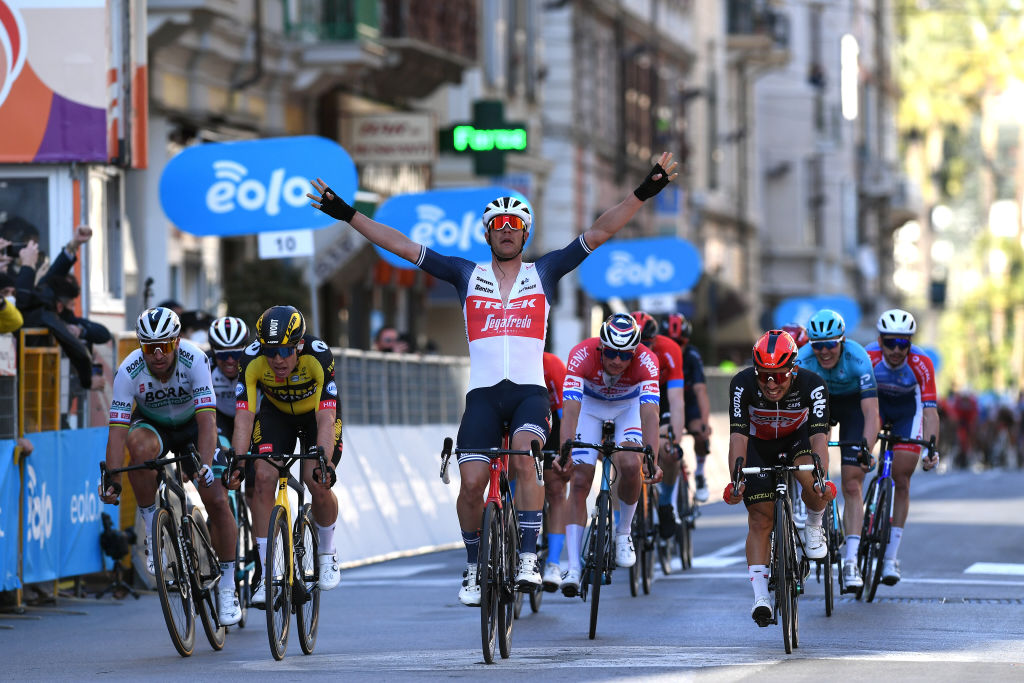
Jasper Stuyven is the obvious leader at Trek-Segafredo after his Milan-San Remo victory but also because of the uncertainty surrounding Mads Pedersen, who must wait for COVID-19 tests to clear him on Saturday.
In terms of a pecking order, Stuyven leads a chasing pack that includes Matteo Trentin (UAE Team Emirates), Michael Matthews (Team BikeExchange), Greg Van Avermaet (AG2R Citroën), Oliver Naesen (AG2R Citroën), Dylan Van Baarle (Ineos Grenadiers), Stefan Küng (Groupama-FDJ), Anthony Turgis (Total Direct Energie), Sep Vanmarcke (Israel Start–Up Nation), Alexander Kristoff (UAE Team Emirates), Tiesj Benoot (Team DSM), John Degenkolb (Lotto Soudal), Alberto Bettiol (EF Education-Nippo), Tom Pidcock (Ineos Grenadiers) and Giacomo Nizzolo (Qhubeka Assos).
There are always breakout performances in a race like the Tour of Flanders but Turgis deserves attention in the build up to the race. He has shown himself to be the strongest Classics rider at Total Direct Energie with a string of top-tens in recent weeks. He was certainly strong enough, and should have been in the lead group at Gent-Wevelgem, and with a back-up that includes former winner Niki Terpstra, Edvald Boasson Hagen, and Damien Gaudin, the French team have a genuine podium contender.
With Bettiol struggling for form due to a winter illness, the door is open for someone to make a name for themselves at EF Education-Nippo.
Sebastian Langeveld and Jens Keukeleire have the pedigree and while this race might come slightly too soon for Michael Valgren after his recent injury, he has past form in picking up surprise results in Flanders, with fourth back in 2018. His best form might arrive just in time for the Ardennes but if he is allowed into an early move he could play a part in the latter stages of the race.
Lotto-Soudal lost Philippe Gilbert to physical and mental fatigue earlier in the week and his departure will be a huge loss for a team that has struggled for wins on the cobbles. They have talent within their ranks, of that there is no doubt, with Tim Wellens and John Degenkolb both set to feature. The latter hasn’t found his sparkling form from earlier in the year due to a short illness, while Degenkolb has been present in several major races but missed the cut in several moves.
Küng looks like a perfect outsider to pull off a solo move similar to Bettiol’s from 2019, and his form in Gent-Wevelgem demonstrated his growing confidence on the cobbles. Paris-Roubaix might feel like a more natural fit for the Swiss national champion rider but he has the condition to play a leading role this weekend too.
Ineos Grenadiers are likely to focus on Dylan van Baarle after his well-deserved win in Dwars door Vlaanderen but Tom Pidcock could play another important cameo alongside Michal Kwiatkowski if the rider is over his recent injury.
AG2R Citroën will be desperate for a result having taken just one win all year. Top tens for both Van Avermaet and Naesen have glossed over the fact that both riders have often been racing on the back foot at times but Flanders provides them with the chance of redemption.
Winning on Sunday will change a riders career, let alone their season.
The latest race content, interviews, features, reviews and expert buying guides, direct to your inbox!
Daniel Benson was the Editor in Chief at Cyclingnews.com between 2008 and 2022. Based in the UK, he joined the Cyclingnews team in 2008 as the site's first UK-based Managing Editor. In that time, he reported on over a dozen editions of the Tour de France, several World Championships, the Tour Down Under, Spring Classics, and the London 2012 Olympic Games. With the help of the excellent editorial team, he ran the coverage on Cyclingnews and has interviewed leading figures in the sport including UCI Presidents and Tour de France winners.
Latest on Cyclingnews
-
Giro d'Italia Women abandons: All of the riders who have left the 2025 race so far
Marianne Vos among three riders not starting stage 7, the Dutch rider feeling unwell -
'I'll announce it next time on Twitter' – Wout van Aert rediscovers sprint form with surprise second-place at Tour de France
Belgian keeps media guessing after saying he wouldn't participate in stage 8 bunch finish in Laval -
Tour de France sprint defeat on stage 8 means different things for Kaden Groves and Tim Merlier
'I'm happy to step up and see if I can fill Jasper Philipsen's shoes,' Groves explains, far less disappointed than Merlier -
'They do this a lot' – Tadej Pogačar responds to pushing incident with Matteo Jorgenson, but UAE and Visma downplay tension
'Maybe we should tell our soigneurs to stand a little bit further apart from each other' says Visma-Lease a Bike's Niermann after feed zone moment on stage 7

